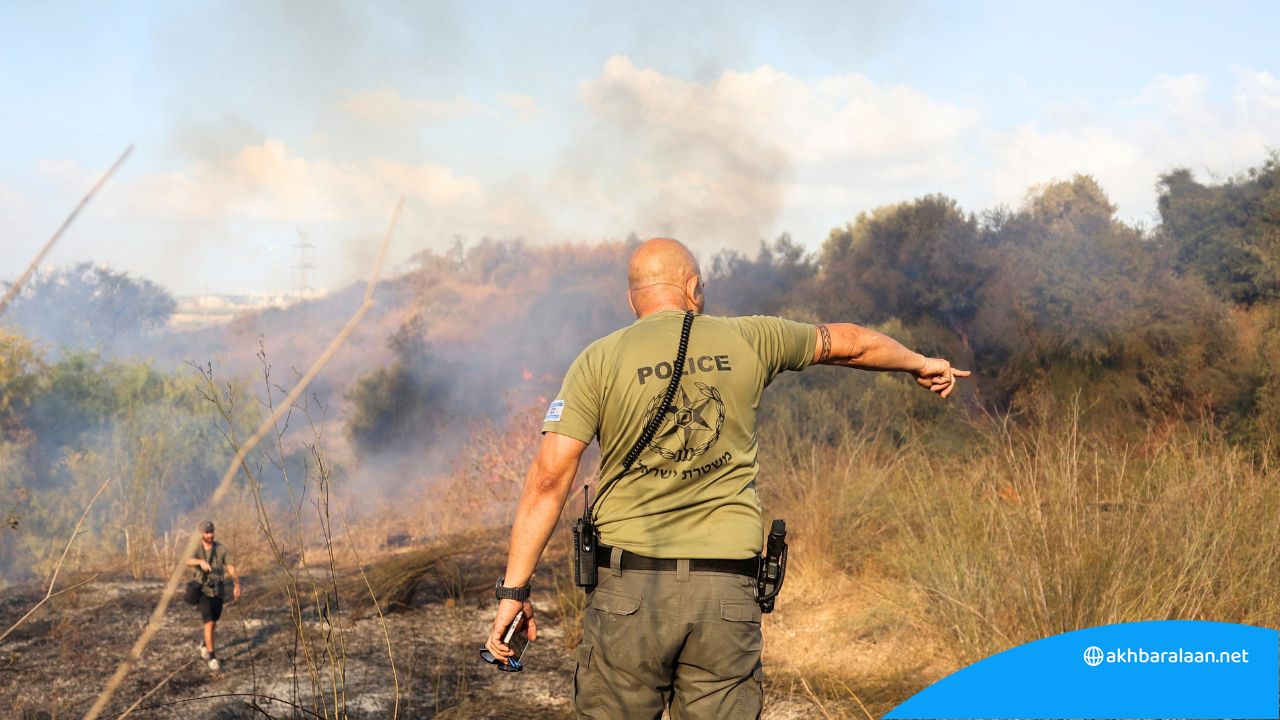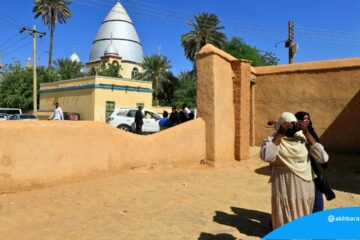Israeli army investigates why missile failed to be detected before it arrived
Advertise Israeli army Early Sunday, a rocket fired from Yemen landed in an “open area” in central Israel.
The army said in a statement, “Following up on the warnings a short while ago in the central region of the country, we are talking about a surface-to-surface missile being launched from the east and falling in an open area.”
He pointed out in Second statement He issued it at around 7:00 a.m. (04:00 GMT) stating that “the missile was launched from Yemen,” explaining that “the explosions heard in the last few minutes were the result of interception missiles. The outcome of the interception operation is still under investigation.”
#Israel She wakes up to a missile attack she says was launched from #Yemen..and the army opens an investigation into the cause of the failure#News_Now #Gaza_War pic.twitter.com/CUzPnREzEv
– Akhbar Al Aan News Now (@akhbar) September 15, 2024
But photos and videos showed destruction and shattered glass at a train station, which Israeli reports said were caused by parts of defensive missiles falling during an attempt to intercept the missile.
According to reports, an initial interception attempt “may have failed” to intercept the missile before it reached Israeli airspace, which would explain the fragments falling inside.
The Israeli army is investigating the inability to detect the missile before it arrived and not intercept it until it reached the center of the country.

In contrast, the deputy head of the Houthi media office, Nasr al-Din Amer, said, “A Yemeni missile reached Israel after 20 missiles failed to intercept it.”
Following the outbreak of war in Gaza, the Houthi rebels in Yemen repeatedly announced the launching of missiles and drones towards the Hebrew state.
For months, the Iranian-backed Houthis have been launching attacks targeting ships off the coast of Yemen, which they say are linked to or heading to Tel Aviv, stressing that this comes in support of the Palestinians in the besieged Palestinian sector.
The Houthis are part of what is known as the “Axis of Resistance,” which includes Iranian-backed factions in the region, such as Lebanon’s Hezbollah and Iraqi armed groups.
“War for war”
Since the outbreak of the war in the Gaza Strip following the unprecedented attack by Hamas, the Middle East region has witnessed an escalation that has increased fears of the expansion of the scope of this war and its transformation into a regional conflict.
Hezbollah and Israel exchange daily shelling across the border, destroying towns and displacing tens of thousands from areas near the border on both sides.
The party’s deputy secretary-general, Naim Qassem, warned on Saturday that a comprehensive war with the Hebrew state would lead to the displacement of “hundreds of thousands more” of Israelis.
“We do not have a plan to initiate war because we do not find it useful, but if Israel launches war, we will confront it with war and the losses will be huge for us and for them as well,” Qassem said in a speech in Beirut.
He added, “If they think that this war will return the hundred thousand displaced persons” to northern Israel, “then from now on we are telling you to prepare to receive hundreds of thousands more displaced persons.”
The statements came after Defense Minister Yoav Galant said on Monday that the Hebrew state is determined to restore calm on the northern front, noting that “there is the option of an agreement that would lead to arrangements in the north and south” of the Hebrew state, with the Lebanese Hezbollah and the Palestinian Hamas movement, “and a second option, which is escalation that will lead to war.”
Tension on the Lebanese front
Since the day after the outbreak of the war in Gaza, Hezbollah has been targeting mainly Israeli military sites, in attacks launched from southern Lebanon in “support” of Gaza and “backing” its resistance. Tel Aviv responds by targeting what it describes as “military structures” belonging to the party, in addition to its fighters.
On Saturday evening, the Israeli army announced that its air force bombed suspected weapons depots in two locations in the Bekaa Valley (east) and six other locations in the south.
Four people, including three children, were injured in shelling on Hermel in eastern Lebanon, 140 km from the Israeli border, according to the Ministry of Health.
A second airstrike targeted Sareen near the city of Baalbek in eastern Lebanon.
Since the escalation began, at least 623 people have been killed in Lebanon, most of them Hezbollah fighters, according to a count by Agence France-Presse based on official data and obituaries, while 24 soldiers and 26 civilians have been killed on the Israeli side and the occupied Syrian Golan, according to official figures.
On Saturday night, thousands of people demonstrated in the streets of Tel Aviv’s main cities in an attempt to increase pressure on the government to secure a deal to release the hostages held in Gaza.
Of the 251 people abducted during Hamas’ October 7 attack on southern Israel that sparked the current war, 97 are still being held in the Gaza Strip, 33 of whom the Israeli military says are dead.
The weekly demonstrations aim to maintain pressure on the government, which opponents accuse of stalling in reaching an agreement to release the remaining hostages.





